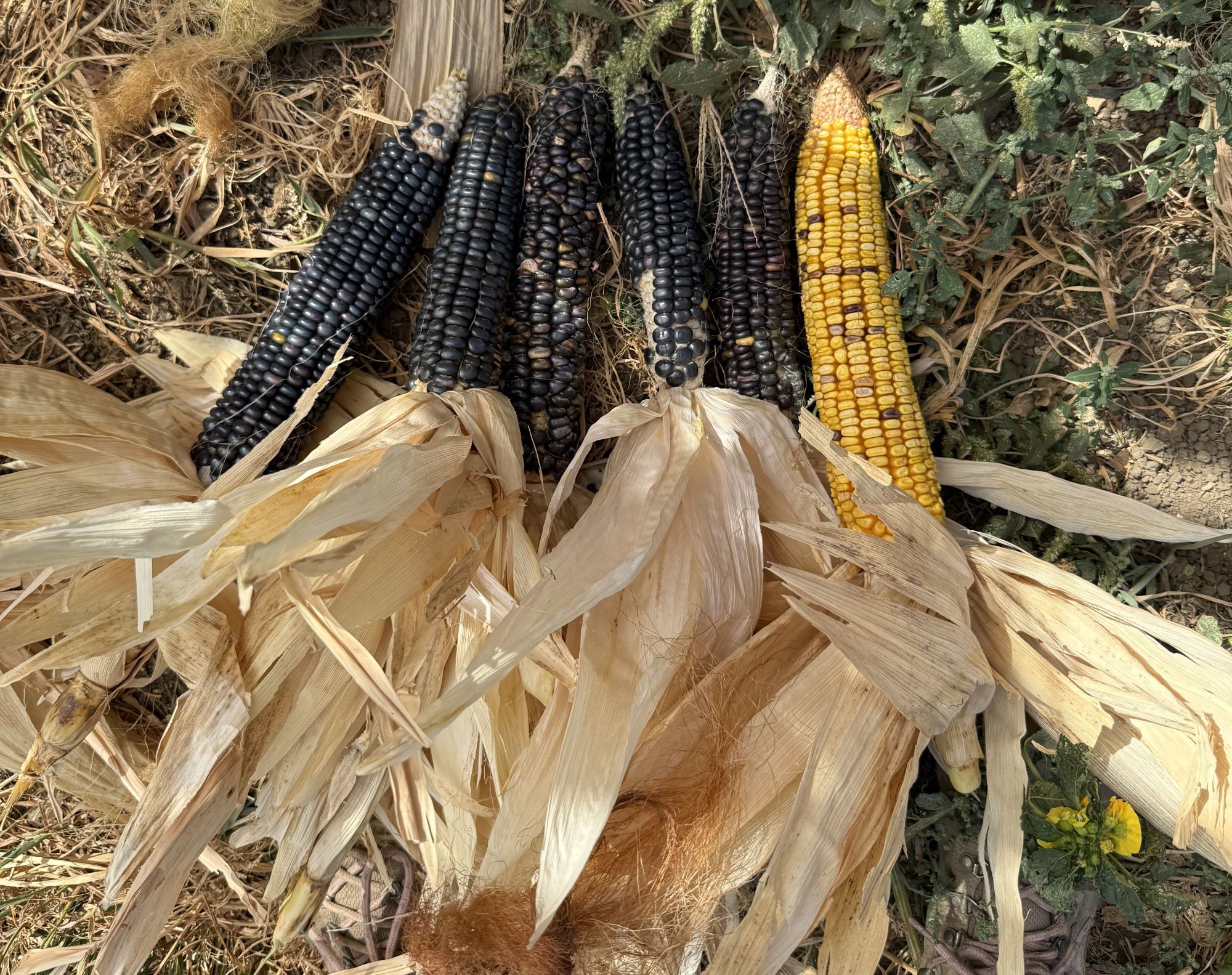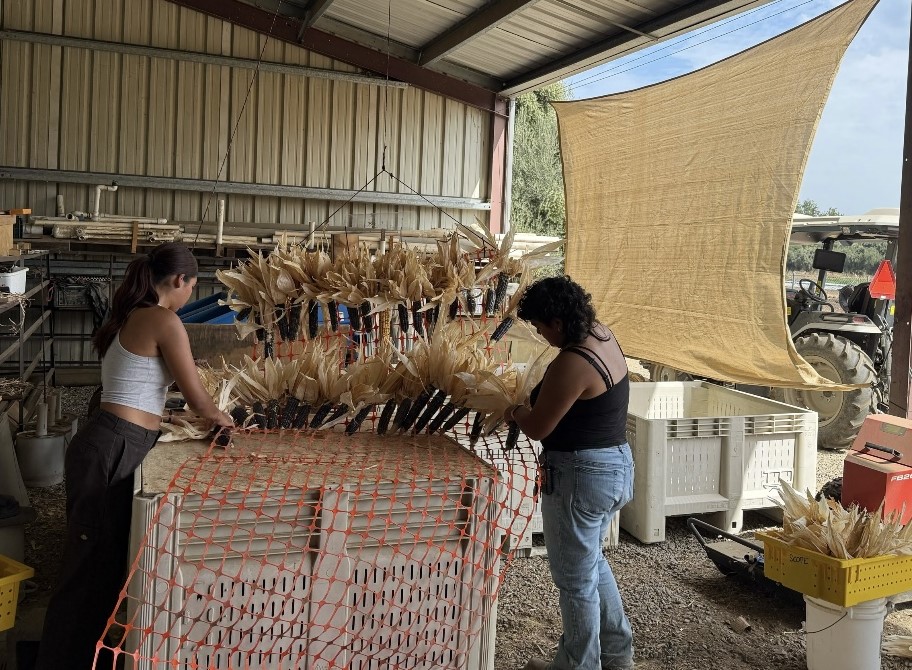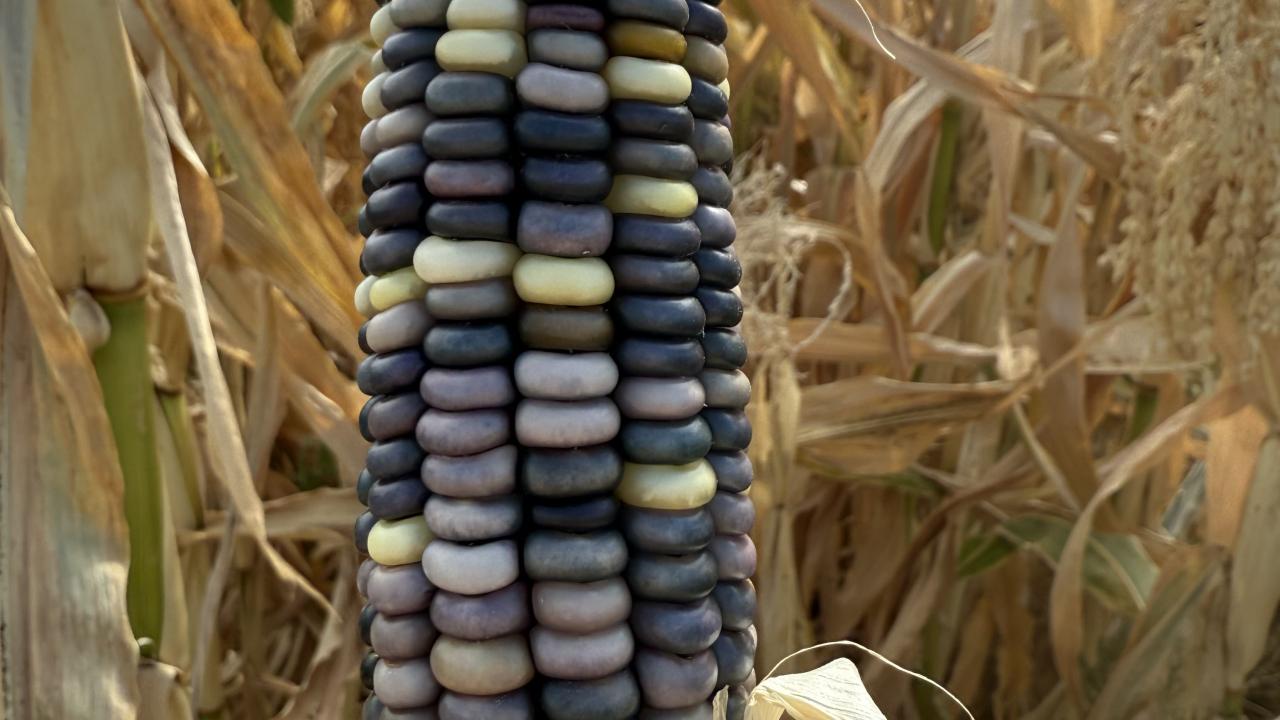
Comida y Comunidad
Student Leadership on the farm
"Making Sustainable Agriculture Education Accessible and Building Community"
This fall, Itzel Villagran will be busy. As a 4th year in Sustainable Agriculture and Development and Lead Student Farmer in the Market Garden program, she is a PEAS fellow, conducting field research in soils, and a Green fellow, building community through growing, sharing and teaching about foods important to her and her family.
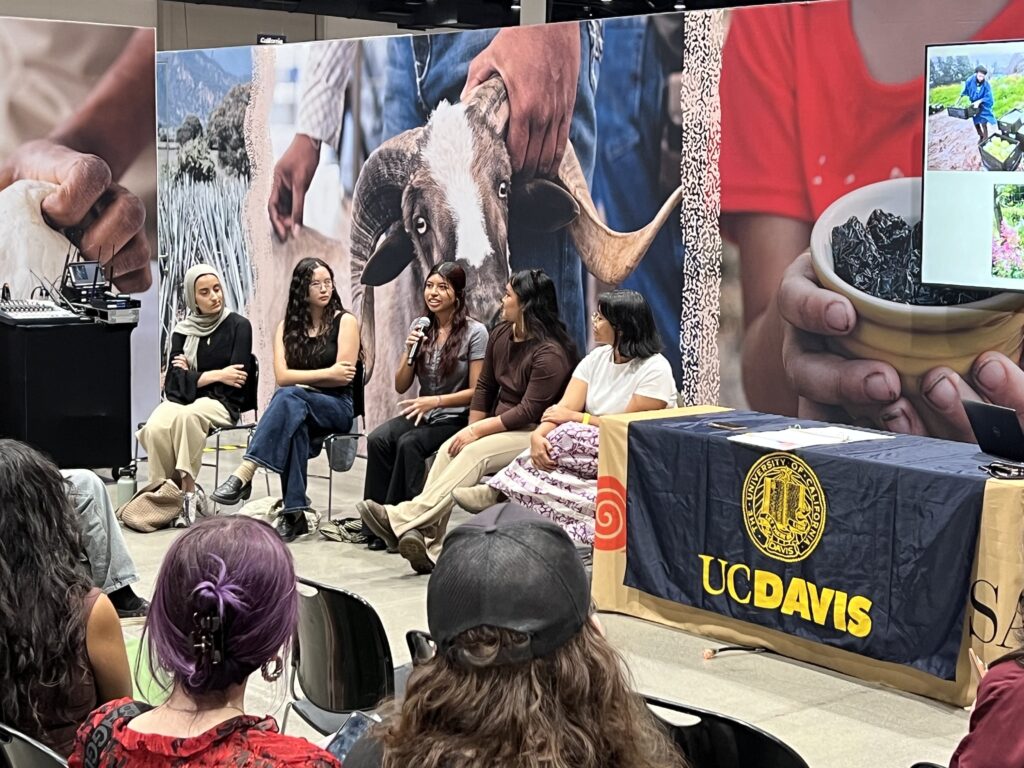
Crops & Workshops
For her green fellowship, Itzel will be hosting a series of six workshops (2 per quarter) focusing on cooking with ingredients significant to the Latino American community targeting UC Davis students and surrounding communities. Through collaboration with the Student Farm, each workshop will include a special guest and will highlight a specific crop to show how it's grown at the farm, its cultural significance, and provide a demonstration for how it's traditionally used in different regions of Latin America by cooking that dish together. Goals of the class include learning about caring for these crops, learning how to utilize them, and providing them in hand for participant's home use. Itzel will be reaching out to student and community groups to join her, including the Center for Chicanx and Latinx Academic Student Success (CCLASS) and the Native Nest.
Each workshop will be concluded with a shared community meal and a space to share stories and
experiences. Planned workshops include:
- Chile drying and salsa making - A history of chiles in the Americas and the varieties of chiles that exist. A demo on how you can dry your own chiles will be taught and following that we will make salsa de molcajete.
- Maize nixtamalization (Oct. 18) - The historical and cultural significance of nixtamalization in Latino American countries cannot be overstated, it’s what allowed indigenous communities to turn maíz into a staple food source. We will teach the process of nixtamalization and then make masa for our quesadillas filled with flor de calabazas!
- Nopal and tuna cactus - Nopales are such an important ingredient in Mexican cuisine. I will go over how to propagate nopales, then we will make a traditional nopal dish with agua de tuna, a drink I indulge in when visiting family in Ciudad de México.
- Epazote and beans - Beans are another crucial part of Latino American cuisine, the diversity of bean dishes varies greatly depending on the region. We will cook a bean dish that also features epazote, an indigenous culinary and medicinal herb.
- Atole - Atole is a sweet corn beverage consumed in many Latino American countries. Participants will learn to prepare atole from scratch, choosing different flavors like chocolate, vanilla, or fruit infusions.
- Tamales - Tamales are a dish made from masa (a type of corn flour dough) usually wrapped in corn husks or banana leaves, and filled with a variety of ingredients (meats, cheese, vegetables). Each region in Latin America has its unique take on tamales. Participants will get hands-on experience making tamales, learning the art of wrapping, steaming, and filling them.
Crops that are included in my diet are unavailable, leaving me with a sense of absence and exclusion of my culture and people. Perhaps there is a whole subset of people wanting to join the Student Farm, but are hesitant to participate because of the crops we don't grow.
In conceptualizing the workshops, Itzel said, "Three years into my academic journey at UC Davis that includes involvement in organic farming and the food justice movement, I have realized that the institution is devoid of cultural representation from the people that make up the majority of the state’s population and of those who are at work everyday to feed our state, our country, and the world. The lack of Latino American ingredients in Davis is experienced when I go to the grocery store or even at my place
of work at the Student Farm, as crops that are included in my diet are unavailable, leaving me with a sense of absence and exclusion of my culture and people. Perhaps there is a whole subset of people wanting to join the Student Farm, but are hesitant to participate because of the crops we don't grow. It is also important to note the importance of the role immigrant farm workers had in their historical fight for labor justice. Perhaps there is a connection to be made between labor justice in farm working, food justice, and sustainability. I want to join in on the fight and welcome students and community members to grow these crops, cook together, and take some home. By growing and sharing these foods, we also create a shared experience of food sovereignty and food justice. At the same time, we’re bringing diversity into spaces like sustainable agriculture, where people of color in general are often underrepresented, especially here at UC Davis."
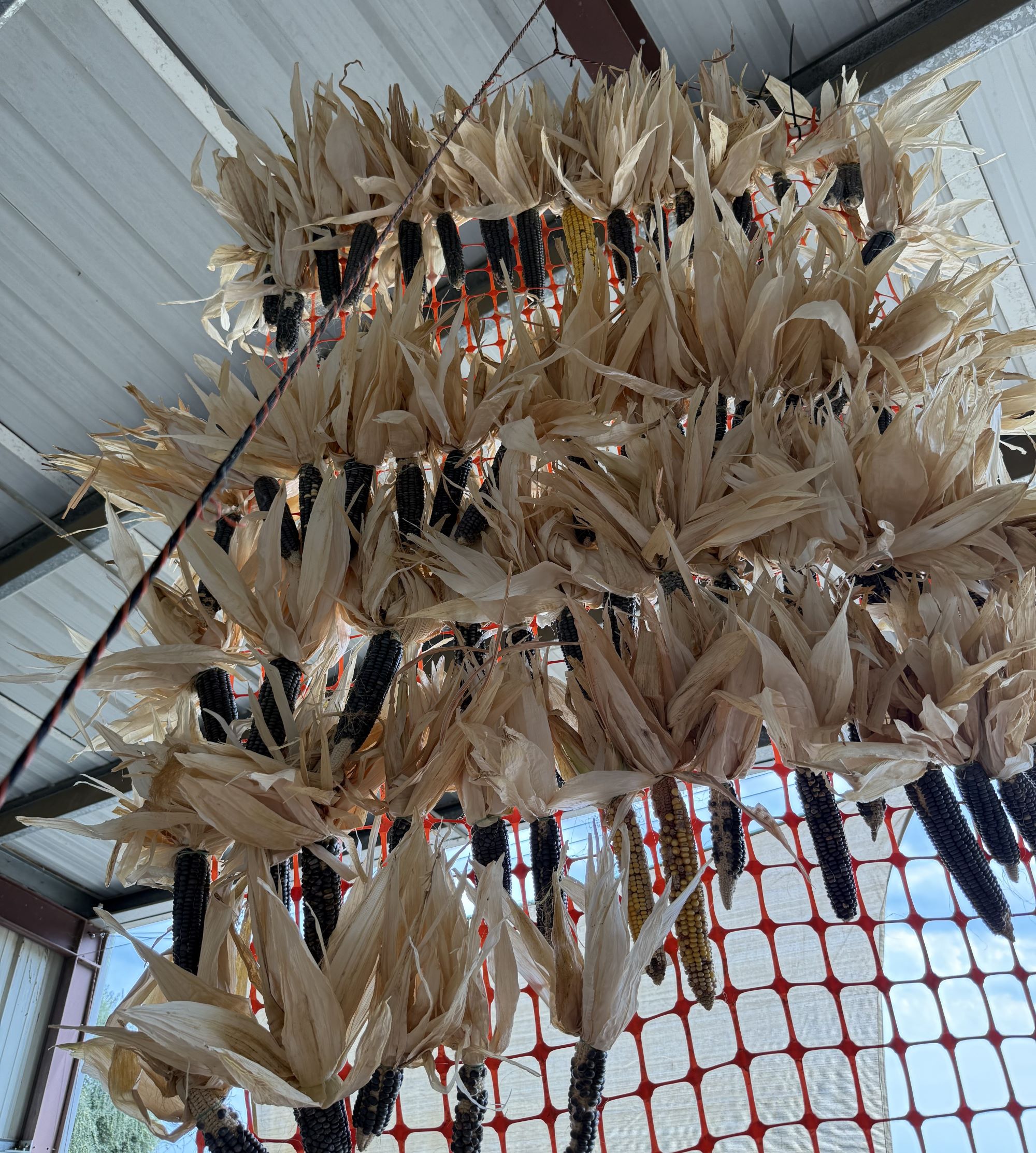
Itzel emphasizes that the whole mission of land grant universities is to make useful information accessible to the public. Her project is directly meeting that mission by making sustainable agriculture and cooking lessons free and accessible. Additionally, by focusing on growing and using ingredients that many students already have a personal connection to, the project makes experiences in sustainable agriculture relatable and meaningful.
